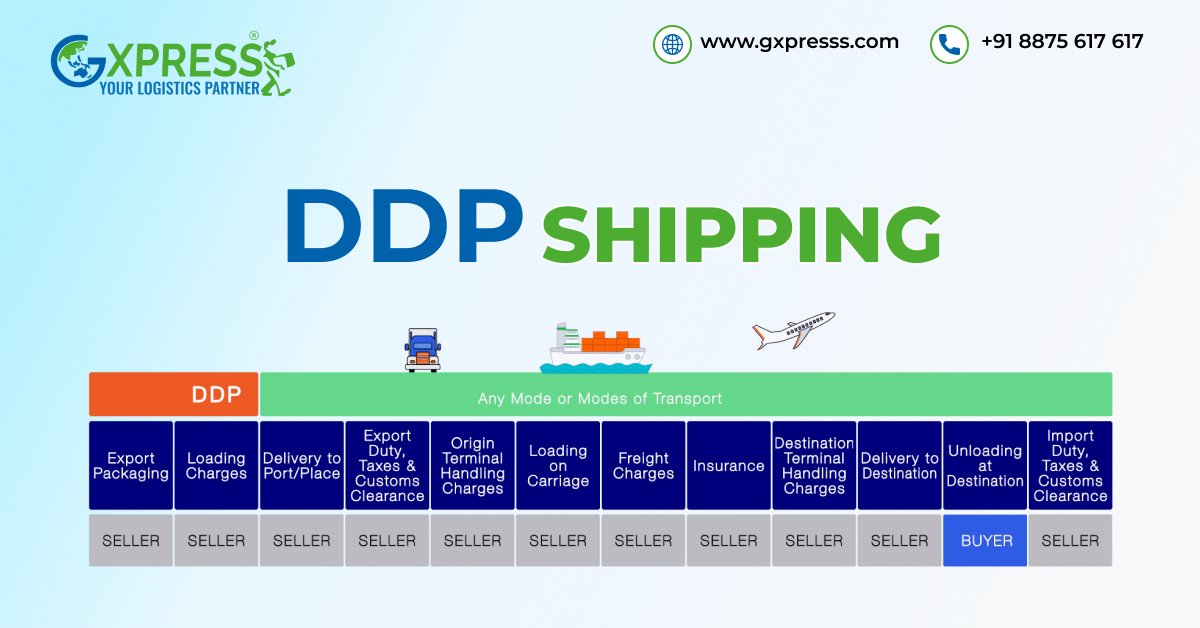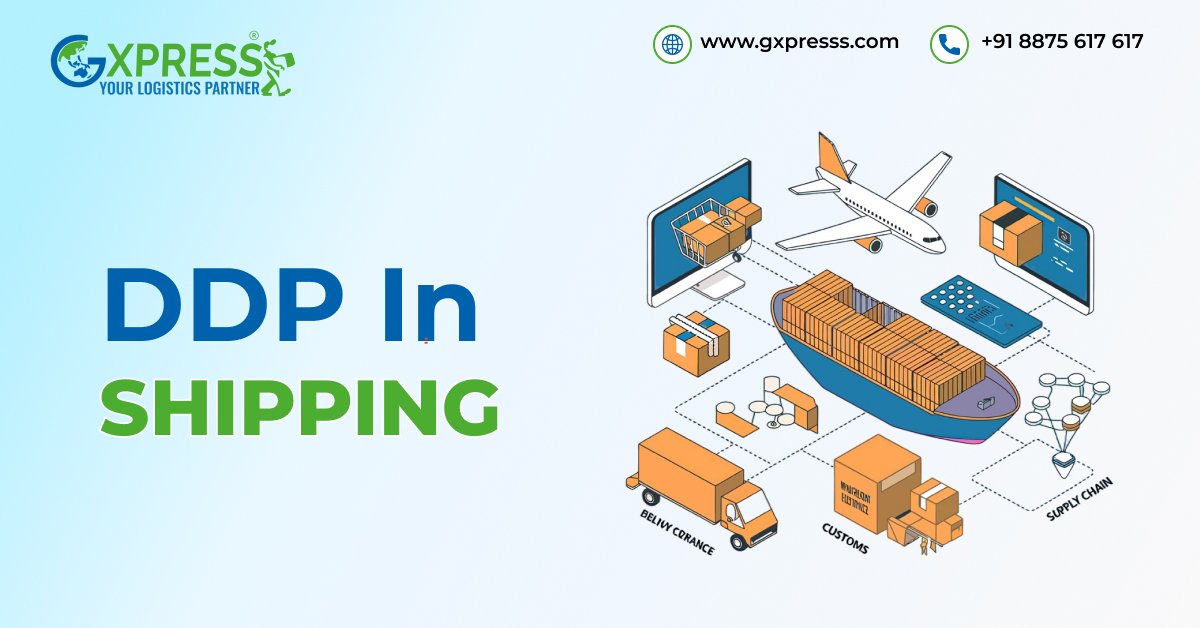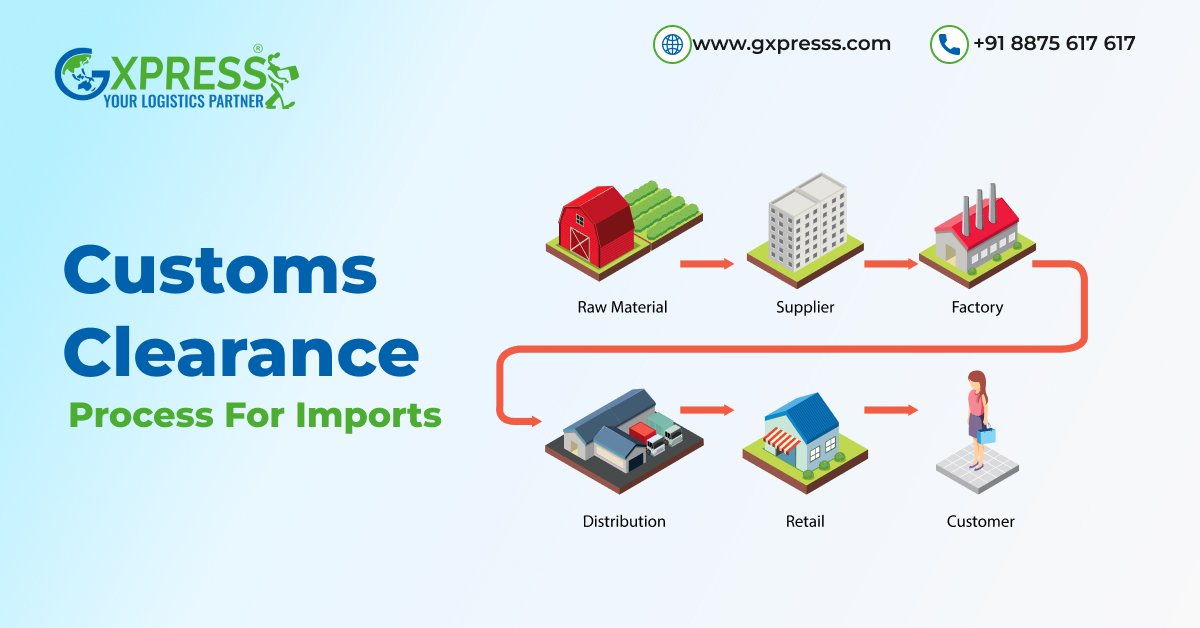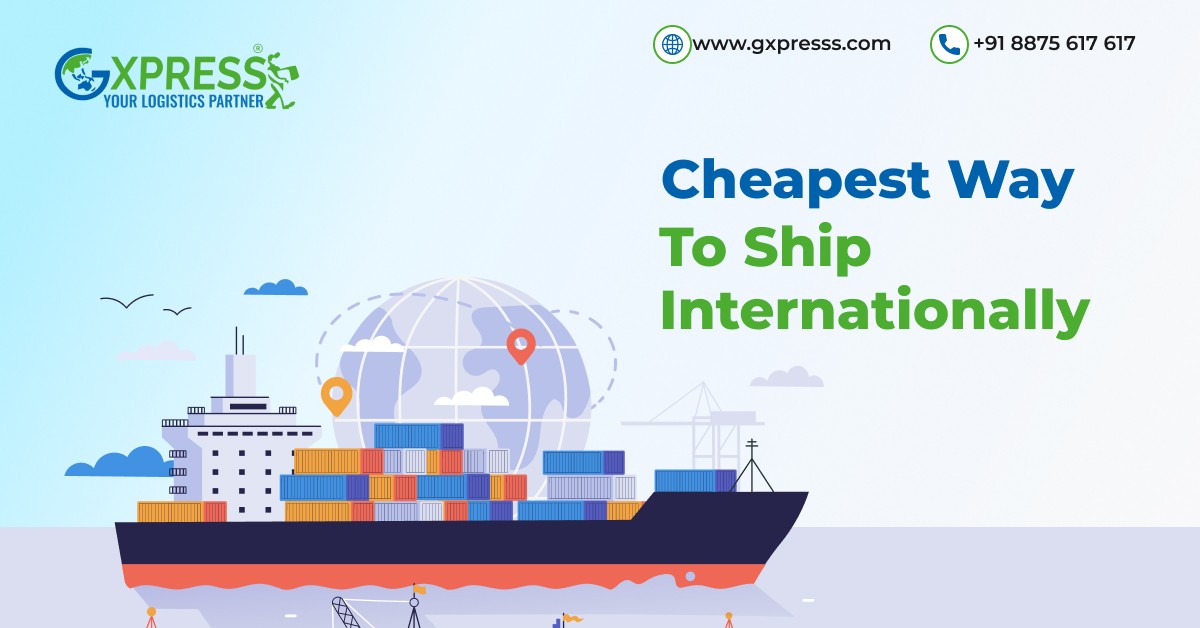July 10, 2025Freight7 min readBy Admin
How DDP Shipping Supports Seamless B2B Logistics in India

DDP shipping can be a lifesaver when you’re in the business world. Suppose you run a not-so-big plant in Pune that makes special electrical parts. A car maker in Germany asks for a big order. You're happy, but then the worry starts. How can you make sure the products get to them without hold-ups at customs, sudden fees, or too much red tape?
Here comes DDP shipment, a big help in B2B logistics, that's making many success stories in India.
Let's dig into how DDP (Delivered Duty Paid) makes business shipping easy, why it's key for growing Indian businesses, and why it might be the best move you make this year.
In short:
DDP = seller takes all the headaches.
DDU = buyer handles local customs, duties, and risk.
For international B2B transactions where you want to make buying as easy as possible, DDP often becomes the preferred model.

What Does DDP Mean in Shipping?
Delivered Duty Paid (DDP) is a global shipping deal under Incoterms (International Commercial Terms). Here, the seller does all the work to get the items to the buyer's place. They take on all the costs and risks. This means, as an Indian seller, under a DDP arrangement, you’re responsible for:- Export and import duties
- Shipping costs
- Insurance
- Customs clearance
- Inland transportation up to the buyer’s door
Key Aspects of DDP Shipping
Let’s break down what makes DDP shipping tick, and why it’s more than just paying extra to take care of everything.1. Full Responsibility on the Seller
You, the exporter, bear all obligations until the goods are safely delivered. This includes:- Paying customs duties and taxes in the country of arrival
- Arranging permits and documents
- Handling all logistics, from freight to last-mile transport
2. Streamlined Experience for Buyers
The buyer gives you the set price, and no more costs after that. They get a smooth, no-trouble delivery. This builds their trust in making deals with you once more.3. Compliance and Documentation
With DDP, the seller ensures the shipment meets both Indian export regulations and the import laws of the buyer’s country. This includes generating:- Commercial invoices
- Packing lists
- Certificates of origin
- Import licenses (if required)
4. Cover and Cut Risks
Because you’re liable until final delivery, most DDP shipments come with robust cargo insurance. This minimizes financial risk if goods are lost or damaged in transit.5. Predictable Costing
The total landed cost is clear from the start. Your buyer knows exactly what they’re paying for the product, with no surprise local charges.DDP vs. DDU: What’s the Difference?
Many businesses confuse DDP with DDU (Delivered Duty Unpaid). While they sound similar, they’re dramatically different in where the responsibility ends.| Aspect | DDP (Delivered Duty Paid) | DDU (Delivered Duty Unpaid) |
| Seller pays | All costs including import duties & taxes | All costs till arrival, excluding import duties & taxes |
| Buyer pays | Nothing extra; receives goods cleared | Pays local import duties and taxes, and arranges final clearance |
| Complexity for the buyer | Very low | High – must navigate customs and pay fees |
| Who bears the risk at customs? | Seller | Buyer |

Advantages of DDP Shipping
So why are so many Indian exporters, especially in textiles, electronics, auto parts, and even specialty foods, opting for DDP shipping today? Here’s why.1. Attracts Global Clients Who Prefer Simplicity
Imagine you’re a furniture maker in Rajasthan. A retailer in Sweden wants your hand-carved tables but doesn’t have an import team. When you offer DDP, they just have to say yes, pay the invoice, and wait for delivery. No dealing with Swedish customs or VAT paperwork. You become instantly more attractive than competitors who offload these burdens onto buyers.2. Improves Customer Satisfaction and Repeat Orders
When your goods arrive seamlessly, it enhances trust. Your buyer’s operations aren’t stalled at ports waiting for paperwork or surprise tax bills. This smooth experience often leads to repeat business.3. Reduces Delays
Rules at the border can be a mix of hard-to-predict laws. With DDP, you, or your shipping partner, take care of all things at the start, dodging slowdowns from buyers who may not know the local import steps.4. Provides Cost Transparency
B2B buyers work on tight budgets. DDP gives them a landed cost upfront, helping them forecast expenses precisely. That’s often more appealing than uncertain add-on fees.5. More Power Over How Your Brand Feels
Since you're in charge of the whole trip, you handle how things are packed, the papers, and even when things get there. Your brand's good name won't be hurt by others messing up.So, Why Opt For DDP?
DDP shipping is not just about moving goods. It's about making deals across borders smooth, creating trust, and keeping customers coming back. If you want to sell more abroad, whether you deal in machines, natural spices, or unique crafts, using DDP could really help you reach more markets. Buyers, especially the small or new ones, like sellers who make things simple.Conclusion
DDP shipping is all about taking down walls. It lets your company take on the hard parts so that your buyers can just have fun with your items without any stress. In a tough world market, this could be your main win. As Indian companies look at larger entrepreneurial opportunities worldwide, from new firms in Ahmedabad to old makers in Ludhiana, DDP stands out as a strong option. It turns tricky international shipping into smooth sailing, making strong B2B ties and aiding our firms to sparkle on the global scene.Frequently Asked Questions
Q1. What is a DDP shipment?
A DDP shipment means the seller covers all costs, risks, and customs duties to get goods to the buyer's door, with import fees paid. The buyer gets the goods with no trouble.Q2. How does DDP shipping work?
In DDP, the seller takes care of everything: the export papers, world shipping, cover, customs on the other side, import fees, and brings it to your place. The buyer just takes the shipment, no need to deal with local import rules.Q3. How much does DDP shipping cost?
DDP usually costs more than other ways because it pays for not just moving goods but also customs fees, local taxes, and sometimes extra fees. Costs change with the country's tax rates, what you're sending, and how far it goes.Q4. Is DDP shipping good for small businesses?
Yes, great for selling far away. It cuts import work for your buyer, making your shop look good and helping to win deals with foreign buyers who don't know customs well.Q5. Who handles customs clearance in DDP?
The seller or their moving mate takes care of all customs work, making sure fees, taxes, and papers are all set before it reaches you.Q6. Can DDP shipping reduce delivery delays?
Yes. Since the seller gets all rules and fees sorted early, there's less risk of goods stuck at customs, leading to smoother, quicker deliveries.Share this article:



